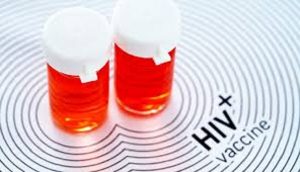
A vaccine is a biological substance that is created to motivate your immune system to carry out the reaction to a peculiar microorganism. A vaccine may comprise of whole killed microorganisms or constituents of them or live but lessen strains. Innovative vaccines such as hepatitis B and candidate vaccines against HIV are most likely genetically produced. The objective of vaccination is to defeat the vaccinated personal from the specific disease following discovery to the etiological microorganism any time later in life. The most common vaccines that you may have admitted are vaccines against tetanus, poliomyelitis, measles and diphtheria.
WHAT IS A CLINICAL TRIAL?
A clinical experiment is a test of a new vaccine candidate in humans. Before a new vaccine can be tried in human volunteers it must be broad tried in the laboratory and its security must be evidenced in animal researches. The capacity of clinical experiments is tightly taken under control by the Medicines Control Agency and Local Research Ethics Committees. All volunteers taking part in clinical experiments must be informed about the experiment and must realize all process and details of the investigation.
WHAT ARE THE PHASES OF CLINICAL TRIALS?
Clinical Experiments are conducted in three stages (I, II and III). A stage I clinical experiments is held in a small (10-30 people) amount of healthy volunteers. The objection of a stage I clinical experiment is to witness at side effects to become sure the vaccine is secure and to get some preparatory information on the effects of the vaccine delegate on the immune system. Tryings will be conducted to define the optimal dose and the vaccination plan. Vaccine that seem to be promising in stage I experiments are placed to the next level. A stage II investigation may involve 100-300 volunteers. The objective of stage II clinical experiments is to take more information on the vaccine’s probable side effects and its effects on the immune system. Stage III investigations are held in huge amounts of volunteers (1000-10.000 people). The main cause of a stage III experiment is to investigate the effectiveness of a vaccine, which implies how well it defeats vaccine recipients from admitting disease. These investigations are likely to take many years to cbe conducted and finish. In these huge investigations rare side effects may be determined that were not seen in the smaller researches.
WHAT STAGE OF DEVELOPMENT ARE HIV VACCINES?
Investigators have been attempting to work out a vaccine for AIDS for many years and over 25 various kinds of vaccine delegates have been tried in more than 50 clinical experiments in about 5000 HIV-uninfected volunteers. Only one vaccine delegate is currently undergoing stage III. None has evidenced efficient so far. In Oxford we are attempting a new method to HIV vaccine development and our delegate vaccines are ready to begin Stage I experiments. There are two various kinds of vaccines. At this level we have to try the two vaccines independently from each other before we can utilize them in a complex vaccination schedule. The main goal of the complex is to get optimal immune response. The two delegate vaccines are being tried in healthy volunteers in Oxford before being researched in volunteers in Kenya.
CAN ANYONE JOIN THIS CLINICAL TRIAL?
No. Various clinical experiments have various requirements for contribution. Whether a person can fill in an experiments is dependent on that experiment’s particular demands. For this clinical experiment participants must be under good health and 18-60 years of age. Any person volunteering should be scheduling to live in the sphere and be accessible for investigation attends over a period of at least 7 months. Women who are pregnant or scheduling to become pregnant in the next 7 months cannot adjust this investigation. States that make you unsuitable for contribution in this investigation contain HIV infection, certain medical states, a history of serious allergic reactions and the utilization of certain prescription medications ordered via My Canadian Pharmacy.

The vaccine might manufacture pain, tenderness, redness or swelling at the injection site, or perhaps mild flu-like symptoms or you may feel no side effect at all. Although all of our tests in animals and prior experiments of similar vaccines in humans identify that this kind of vaccine is secure, there always remains a small risk of unwanted side effects. That is one reason why we have to perform several clinical experiments. Until the candidate vaccine has been tried for many years in thousands of people it is not probable to say whether it is secure.
COULD I GET AIDS FROM THIS VACCINE?
No, you cannot. The vaccines comprise only of artificially created small constituents of the genetic material of HIV which cannot place a new, live and infectious virus. The vaccines do not comprise killed or weakened HIV.
WILL THE VACCINE I RECEIVE PROTECT ME AGAINST HIV INFECTION?
No. We do not guess at this level whether this vaccine is efficient therefore you have to admit that you are not defeated. You must go on to take part the most secure behavior to prevail HIV infection.
CAN THIS VACCINE OR ITS EFFECTS BE PASSED ON TO MY PARTNER OR FAMILY?
The delegate vaccines are not transmissible to others by close or intimate contact. Nevertheless, just to be secure, women who are pregnant or scheduling to become pregnant in the next 7 months cannot adjust this vaccine investigation. Similarly, women who are breast feeding should not volunteer.
WILL I KNOW WHAT VACCINE I WILL BE RECEIVING?
Yes. During the screening for the first vaccine experiment, you will be spoken which vaccine you will adnit and the dose of the vaccine. Further experiments may contain a control group.
WHAT IS AN INFORMED CONSENT?
An awared consent is a paper that gives the explanation to you all, the details of the experiment such as the investigation concept, the purpose of the investigation, any potential risks and profits and your rights as a volunteer. The information given to you will be in writing as well as verbal. Before you are going to take part in the trial you will be required to sign the informed consent sheet in the presence of a research crew member. Signing an informed consent form does not disturb your legal rights. You may extract your consent at any time without giving a reason.
WILL IT COST ME ANYTHING?
No. The vaccine is chargeless, as are all the tests and screenings we will conduct during the experiment. We are capable to give you £15 for each planned attendance to cover travel prices and any other prices you undergo taking part in the investigation.
WILL I STILL NEED MY OWN DOCTOR?
Yes. Adjusting the vaccine investigation is not the same as admitting health care. Even while you are taking part in a clinical research, it is very significant to attend your doctor if you demand to. The doctors you will meet in the experiment are not answerable for supplying your general health care, although they will be delighted to give responses for any questions you might have. After admitting your consent the trial doctor will inform your GP that you are tsaking part in the investigation.
WHO’S IN CHARGE OF THE TRIAL?
The person in charge of the trial is called The Principal Investigator. For this study the Principal Investigator is Professor Andrew McMichael.

There will be no direct medical benefit to you for taking part in this study. However, it essential that people volunteer for this and other studies. Without you and others volunteering we will not be able to develop an effective vaccine to prevent the spread of AIDS.
HOW DO I FINALLY DECIDE?
Get the facts. Talk to the study team about what will happen during the trial, and what is expected of you. Do not be afraid to ask questions, no matter how silly you think they are. Think it over. Do not join the trial until you are comfortable with all you have learned. It is important to understand that the researchers plan their studies around the participants and it is better not to enroll than to dropout half way through.
HOW DO I ENROLL IN THE STUDY?
Call us on the free phone number for the study (1911 270 7089), write to Vaccine Study c/o Professor Andrew McMichael, Weatherall Institute of Molecular Medicine, The John Radcliffe, Headington, Oxford, OX3 9DS or e-mail us oxavi@medscape.com
WHAT IF THERE ARE TOO MANY VOLUNTEERS OR MY APPLICATION IS TOO LATE?
The trial starting in late summer 2000 is the first in a series of phase one trials. We need only eighteen volunteers for this trial but will need more volunteers for our next studies. The second and third trials should start soon. A fourth trial is planned for early next year. Therefore we may not need you immediately, but you could help us in one of these future trials.
WILL THE VACCINE WORK AGAINST OTHER STRAINS OF HIV INCLUDING THOSE IN THE UK, EUROPE AND USA?
We do not guess whether the vaccine will perform at all yet. That is what we are performing towards in this first vaccine experiment. Nevertheless we do guess that if the vaccine motivates killer T cells, that they are likely to witness other strains of HIV, though not as effectively as the A strain. We can and will try this in the immune responses created by the vaccine recipients in this experiments. If the T cell gave reaction with B or C strain with say 90% efficiency this would be very good news implying that it might be probable to create a “universal” vaccine. Nevertheless if the cross-reactivity was say only 60% it would be obligatory to tailor vaccines to particular components of the world, there might demand to be five similar vaccines. It would not be at all undertaking to make a B (Europe, USA, South America), C (Southern Africa, China, India), D (central Africa) and E (Thailand) version of this vaccine, but each would have to undergo the type of testing we are now doing for our A strain vaccine candidate.
IF THE VACCINE WORKS, HOW LONG WILL IMMUNITY LAST?
It is likely that the immune response motivated by this vaccine will not last more than a few months. We will try this as constituent of our investigation in the trial volunteers. This is not that unusual for a vaccine, tetanus vaccination demands constant hypervaccination as does flu and the old small pox vaccination. Nevertheless, one of our future aims would be to find ways of making the immune response motivated by the vaccine longer lasting.
IF VACCINE RECIPIENTS SHOULD BECOME NATURALLY INFECTED DURING THE COURSE OF THE TRIAL, WILL THEY BE TREATED?
Of course they will. They will be transported immense to a physician with appropriate experience of treating HIV infection. As part of the briefing and screening procedure for volunteers, this will be discussed and they will have the chance to talk in confidence to an experienced HIV/AIDS counsellor, Simon Darwin.

No, the current vaccine experiments are directed at a prophylactic vaccine that will defeat uninfected persons from becoming infected with HIV. Therefore for these experiments we can only immunise uninfected persons and in the first phases (Stage 1) these volunteers should be at very low risk of HIV infection.
Nevertheless, we acknowledge that there is a great demand for more efficient, and less expensive, therapies for those already infected with HIV. We are at the present moment creating plans for investigations that will utilize our vaccine delegates for therapy. On their own they are unlikely to suggest very much because the infecting HIV already motivates the best reaction the person can arrange. Nevertheless there could be methods of complecting the vaccine with anti-viral drugs to enhance treatment. When HIV-infected persons are put on potent anti-retroviral drugs (HAART) the virus load usually falls to a very low level, so low that it cannot go on to motivate a strong immune reaction. If treatment is arrested for any reason the virus tends to jump off rapidly and the infection begins to progress again. We and others have offered that vaccine treatment of those on HAART might motivate the immune reaction so that virus jump off after arresting drug therapy might be decreased.
This idea will demand scientifically rigorous tryings that will demand stages experiments with control treatments. We have begun to schedule this and can regard the current stage 1 investigations in healthy volunteers as the first step in displaying security of the vaccines and their capability to motivate immune responses. We are hopeful to start therapeutic investigations in a small amount of HIV infected persons on HAART in 2001 but there are several steps to finish, inclusively of admitting permission from Ethical Committees, the Medicines Control Agency and the national Gene Therapy Advisory Committee before we can begin.
If you might be engaged in volunteering for this kind of investigation, please do not come in contact with us yet. We will make an announcement on this web site if and when we are searching for volunteers. This will not be before March 2001. Please remember that this method will demand some years of very careful trying before it could become an available treatment for HIV infection.
HOW DO I FUND OUT MORE ABOUT AIDS VACCINE ADVOCACY?
Please check www.iavi.org The Internationa AIDS Vaccine Initiative, IAVI, is the leading advocate of a global AIDS vaccine strategy and is working out how to make any vaccine discovered available to all.

